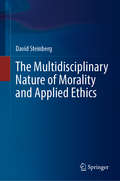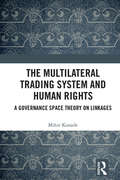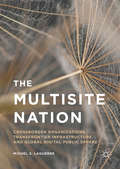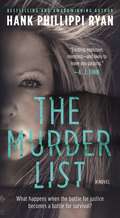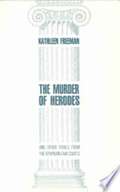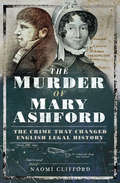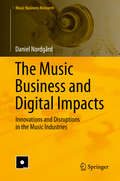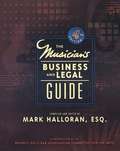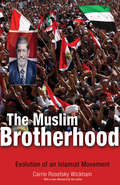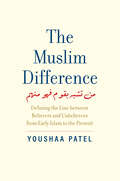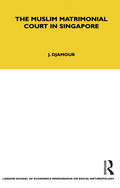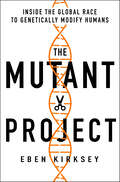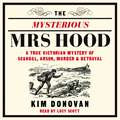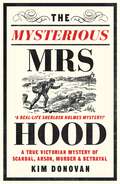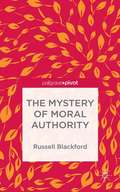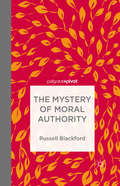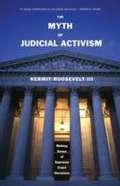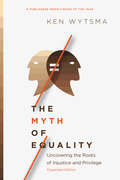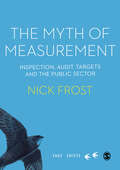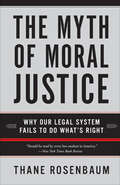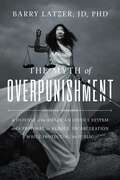- Table View
- List View
The Multidisciplinary Nature of Morality and Applied Ethics
by David SteinbergMost people intuitively understand the nature of morality; this tends to belie the fact that morality is more complex, controversial and interesting than generally appreciated. This book provides a comprehensive overview of morality from various disciplines and perspectives. These include ethics and evolution, moral psychology, morality and culture, morality and religion and morality and the law. A chapter on evil illustrates the vulnerability of morality. The book also provides a description and critique of various ethical theories, the difference between a moral obligation and a moral ideal and the views of venerable moral philosophers who argue over issues such as whether objective moral truth exists. A number of practical ethical dilemmas are discussed. The book is written in language accessible to the general reader and will be of interest to members of organizational, governmental, and professional ethics committees, students in ethics fellowships or ethics degree programs, philosophers, and others who want to learn more about morality.
The Multilateral Trading System and Human Rights: A Governance Space Theory on Linkages
by Mihir KanadeThis book contributes an original theory to understanding human rights and international trade. It offers the ‘governance space’ framework for analysing the linkages and normative relationships between the multilateral trading system (MTS) and human rights regimes. Drawing upon key case studies, the author identifies connecting strands as also gaps in linkage issues. He further examines the ‘right to development’ approach to resolve tensions between these two regimes and demonstrates how the approach may be the most appropriate road map to finding sustainable solutions in balancing human rights and equitable free trade in a complex globalised world. Presenting new legal analyses informed by current debates drawn from international organisations – the World Trade Organization, United Nations, International Labour Organization – governments, civil society and academia as well as global commitments such as the Sustainable Development Goals, the book proposes a systematic and holistic policy intervention. This timely and transdisciplinary text will be of great interest to academics, students and scholars of human rights, international trade, international law, development studies, public policy and governance, economics, politics and international relations. It will also be useful to policymakers, think-tanks, human rights advocates, professionals, lawyers, civil society organisations, non-governmental organisations and trade experts.
The Multisite Nation
by Michel S. LaguerreThis book explains the transformation of the nation into a cosmonation (or multisite nation) through the reunification of the homeland with its diaspora. The book elaborates on how the mechanisms of linkages, connections, and networking interact to form distributed sites of homeland and diaspora into a cosmonation and how diasporans in different units of such a crossborder social formation, wherever they relocate, relate to each other. The ensemble thereby functions as a cultural and political collectivity manifested through cultural traditions, inter-site familial, institutional, and associational ties, transnational solidarity, and reverence for the ancestral homeland.
The Murder List: A Novel of Suspense
by Hank Phillippi Ryan"An exhilarating thrill ride that keeps you turning pages.. Ryan deftly delivers a denouement as shocking as it is satisfying."--Liv Constantine, bestselling author of The Last Mrs. Parrish and The Last Time I Saw YouLaw student Rachel North will tell you, without hesitation, what she knows to be true. She's smart, she’s a hard worker, she does the right thing, she’s successfully married to a faithful and devoted husband, a lion of Boston's defense bar, and her internship with the Boston DA's office is her ticket to a successful future. Problem is--she’s wrong. And in this cat and mouse game--the battle for justice becomes a battle for survival. The Murder List is a new standalone suspense novel in the tradition of Lisa Scottoline and B. A. Paris from award-winning author and reporter Hank Phillippi Ryan.At the Publisher's request, this title is being sold without Digital Rights Management Software (DRM) applied.
The Murder of Herodes: And Other Trials From the Athenian Law Courts
by Kathleen FreemanThese remarkable documents of Greek social and cultural history include masterpieces of lively narrative and subtle argument prepared by such orators as Lysias, Antiphon, and Demosthenes. The fifteen cases presented represent the first recorded instances of the working of a democratic jury system under a definite code of law aimed at inexpensive and equal justice for all citizens. Issues examined include murder, assault, property damage, embezzlement, contested legacies, illegal marriage, slander, and civil rights. Also provided are comprehensive background chapters on the professions of law and rhetoric in ancient Athens and explanatory notes clarifying the course of each trial.
The Murder of Mary Ashford: The Crime that Changed English Legal History
by Naomi CliffordIn the small hours of 27 May 1817, Mary Ashford, a young servant girl from the village of Erdington near Birmingham, left a party in the company of Abraham Thornton. A few hours later she was found drowned in a pool; an inquest established that she had been raped. Despite a seemingly solid alibi, Thornton, an uncouth young man with a bad reputation, was soon on trial for his life, but to the widespread consternation of everyone from the local gentry to the humblest labourer, he was acquitted at the direction of the judge. Public opinion across the country was outraged, convinced that a murderer had evaded the gallows. Then, in a last-ditch effort to find justice, Mary’s brother used an archaic legal process to prosecute Thornton again, only find himself confronted with an extraordinary challenge. In court, Thornton threw down a gauntlet and demanded his legal right to trial by combat… The outcome altered the course of English legal history. In this many-layered account, Naomi Clifford looks at the key issue of whether Thornton was guilty but also explores themes including the birth of forensic investigation, the meaning of sexual consent and the struggle of a modern state to emerge from its medieval legal heritage.
The Murder of Regilla: A Case of Domestic Violence in Antiquity
by Sarah B. PomeroyBorn into a Roman family, Regilla was married at 15 to Herodes, a wealthy Greek. 20 years later, she died under mysterious circumstances and her brother charged Herodes with murder, although he was later acquitted. Pomeroy's investigation suggests that Herodes was in fact guilty of her death.
The Music Business and Digital Impacts: Innovations and Disruptions in the Music Industries (Music Business Research)
by Daniel NordgårdThis book provides rare insights into the difficult and complex dialogues between stakeholders within and outside the music industries in a time of transition. It builds on a series of recorded meetings in which key stakeholders discuss and assess options and considerations for the music industries’ transition to a digital era. These talks were closed to the public and operated under the Chatham House Rule, which means that they involved a very different type of discussion from those held in public settings, panels or conferences. As such, the book offers a much more nuanced understanding of the industries’ difficulties in adjusting to changing conditions, demonstrating the internal power-struggles and differences that make digital change so difficult. After presenting a theoretical framework for assessing digital change in the music industries, the author then provides his research findings, including quotes from the Kristiansand Roundtable Conference. Following from these findings, he develops three critical concepts that explain the nature as well as the problems of the music industries’ adaptation process. In conclusion, he challenges the general definition of crisis in the music industries and contradicts the widely held view that digitalization is a case of vertical integration.
The Musician's Business and Legal Guide
by Mark HalloranWritten specifically for musicians by legal and business experts in the music industry, this text covers nearly all of the confusing business and legal situations musicians find themselves in on the way to and through a professional career. It focuses on issues as they are actually practised with clause-by-clause commentaries on almost all the major music industry contracts.
The Musician's Guide To Licensing Music: How To Get Your Music Into Film, Tv, Advertising, Digital Media And Beyond
by Daylle Deanna Schwartz Darren WilseyRecord deals are so twentieth century. Today, music licensing is the fastest route to widespread exposure and a steady income. Creators of films, television shows, commercials, video games, ringtones, podcasts and other digital-age media hunger for music perfectly suited to their projects—providing endless, lucrative opportunities for savvy musicians. Whether you’re an unknown composer, an up-and-coming songwriter, an independent-label performer, or a big label star, there’s a place for you in this fast-growing field—as long as you learn to master the game.
The Muslim Brotherhood: Evolution of an Islamist Movement - Updated Edition
by Carrie Rosefsky WickhamHow the Muslim Brotherhood rose to power in Egypt, and what it means for the Islamic worldFollowing the Arab Spring, the Muslim Brotherhood achieved a level of influence previously unimaginable. Yet the implications of the Brotherhood's rise and dramatic fall for the future of democratic governance, peace, and stability in the region are disputed and remain open to debate. Drawing on more than one hundred in-depth interviews as well as Arabic-language sources never before accessed by Western researchers, Carrie Rosefsky Wickham traces the evolution of the Muslim Brotherhood in Egypt from its founding in 1928 to the fall of Hosni Mubarak and the watershed elections of 2011-2012. Highlighting elements of movement continuity and change, Wickham demonstrates that shifts in Islamist worldviews, goals, and strategies are not the result of a single strand of cause and effect, and provides a systematic, fine-grained account of Islamist group evolution in Egypt and the wider Arab world.In a new afterword, Wickham discusses what has happened in Egypt since Muhammad Morsi was ousted and the Muslim Brotherhood fell from power.
The Muslim Difference: Defining the Line between Believers and Unbelievers from Early Islam to the Present
by Youshaa PatelA sweeping history of Muslim identity from its origins in late antiquity to the present How did Muslims across time and place define the line between themselves and their neighbors? Youshaa Patel explores why the Prophet Muhammad first advised his followers to emulate Christians and Jews, but then allegedly reversed course, urging them to &“be different!&” He details how subsequent generations of Muslim scholars canonized the Prophet&’s admonition into an influential doctrine against imitation that enjoined ordinary believers to embody and display their religious difference in public life. Tracing this Islamic discourse from its origins in Arabia to Mamluk and Ottoman Damascus, colonial Egypt, and beyond, this sweeping intellectual and social history offers a panoramic view of Muslim identity, revealing unexpected intersections between religion and other markers of difference across ethnicity, gender, and status. Patel illustrates that contemporary debates in the West over visible expressions of Islam, from headscarves and beards to minarets and mosques, are just the latest iterations in a long history of how small differences have defined Muslim interreligious encounters.
The Muslim Matrimonial Court in Singapore (LSE Monographs on Social Anthropology #Vol. 31)
by Judith DjamourThis book is an anthropologist's field study of the new court set up in Singapore to deal with matrimonial suits (chiefly divorce) among Muslims. The study is based on careful observation of the court in action, and analyses in detail the relationship between the reformist aims of the new law and the values and expectations of litigants. The book takes its departure from the argument developed in Dr Djamour's earlier work, Malay Kinship and Mamage in Singapore (Athlone Press, 1959; paperback edition 1965), and discusses the effect of recent attempts to promote the stability of Muslim marriage. Social scientists, lawyers, students of Islam, and those interested in Malayan problems will find in this book the same qualities that distinguished Dr Djamour's previous study -- lively and sympathetic descriptive powers joined to an ability for clear factual analysis.
The Mutant Project: Inside the Global Race to Genetically Modify Humans
by Eben KirkseyAn anthropologist visits the frontiers of genetics, medicine, and technology to ask: Whose values are guiding gene editing experiments? And what does this new era of scientific inquiry mean for the future of the human species?"That rare kind of scholarship that is also a page-turner."—Britt Wray, author of Rise of the NecrofaunaAt a conference in Hong Kong in November 2018, Dr. He Jiankui announced that he had created the first genetically modified babies—twin girls named Lulu and Nana—sending shockwaves around the world. A year later, a Chinese court sentenced Dr. He to three years in prison for "illegal medical practice."As scientists elsewhere start to catch up with China’s vast genetic research program, gene editing is fueling an innovation economy that threatens to widen racial and economic inequality. Fundamental questions about science, health, and social justice are at stake: Who gets access to gene editing technologies? As countries loosen regulations around the globe, from the U.S. to Indonesia, can we shape research agendas to promote an ethical and fair society?Eben Kirksey takes us on a groundbreaking journey to meet the key scientists, lobbyists, and entrepreneurs who are bringing cutting-edge genetic engineering tools like CRISPR—created by Nobel Prize-winning biochemists Jennifer Doudna and Emmanuelle Charpentier—to your local clinic. He also ventures beyond the scientific echo chamber, talking to disabled scholars, doctors, hackers, chronically-ill patients, and activists who have alternative visions of a genetically modified future for humanity. The Mutant Project empowers us to ask the right questions, uncover the truth, and navigate this brave new world.
The Mysterious Mrs Hood: A True Victorian Mystery of Scandal, Arson, Murder & Betrayal
by Kim Donovan'A gripping story of a cold-blooded murder... This is true crime at its best' Wendy Moore'Drama so addictive it should be illegal' Sam ChristerA true Victorian murder mystery...Great Yarmouth, September 1900: A young woman is found dead on the beach, a bootlace tied tightly around her neck. Despite her death attracting national attention in the press, nobody claims her. Detective Inspector Robert Lingwood of the Great Yarmouth police force declares he will not rest until the mystery of the young woman's death is solved. But it's only once the case has been referred to Scotland Yard that the layers of mystery start to peel away... 'Mrs Hood' was in fact Mary Jane Bennett, and this is her story. Following clues and tracking red herrings leads the police to close in on their one and only suspect. With arson, fraud, an affair and a sensation-hungry press, the murder gripped the nation in one of the most eagerly anticipated trials of the early twentieth century. Author Kim Donovan finally tells her great-great-aunt's story and the truth of evil duplicity in Victorian England.'As atmospheric and absorbing as any murder mystery... A combination of your favourite whodunnit and your favourite true crime podcast. A real triumph!' Books by Your Bedside blog*A fascinating historical true crime case perfect for fans of The Suspicions of Mr Whicher and The Five*
The Mysterious Mrs Hood: A True Victorian Mystery of Scandal, Arson, Murder & Betrayal
by Kim Donovan'A gripping story of a cold-blooded murder... This is true crime at its best' Wendy Moore'A true crime thriller that pulls you in, with drama so addictive it should be illegal' Sam ChristerA true Victorian murder mystery...Great Yarmouth, September 1900: A young woman is found dead on the beach, a bootlace tied tightly around her neck. Despite her death attracting national attention in the press, nobody claims her. Detective Inspector Robert Lingwood of the Great Yarmouth police force declares he will not rest until the mystery of the young woman's death is solved. But it's only once the case has been referred to Scotland Yard that the layers of mystery start to peel away... 'Mrs Hood' was in fact Mary Jane Bennett, and this is her story. Following clues and tracking red herrings leads the police to close in on their one and only suspect. With arson, fraud, an affair and a sensation-hungry press, the murder gripped the nation in one of the most eagerly anticipated trials of the early twentieth century. Author Kim Donovan finally tells her great-great-aunt's story and the truth of evil duplicity in Victorian England.'As atmospheric and absorbing as any murder mystery... A combination of your favourite whodunnit and your favourite true crime podcast. A real triumph!' Books by Your Bedside blog*A fascinating historical true crime case perfect for fans of The Suspicions of Mr Whicher and The Five*
The Mystery of Moral Authority
by Russell BlackfordThe Mystery of Moral Authority argues for a sceptical and pragmatic view of morality as an all-too-human institution. Searching, intellectually rigorous, and always fair to rival views, it represents the state of the art in a tradition of moral philosophy that includes Thomas Hobbes, David Hume, and J.L. Mackie.
The Myth Of Judicial Activism
by Kermit RooseveltThis carefully considered book is a welcome addition to the debate over "judicial activism." Constitutional scholar Kermit Roosevelt III offers an elegantly simple way to resolve the heated discord between conservatives, who argue that the Constitution is immutable, and progressives, who insist that it is a living document that must be reinterpreted in new cultural contexts so that its meaning evolves. Roosevelt uses plain language and compelling examples to explain how the Constitution can be both a constant and an organic document. Recent years have witnessed an increasing drumbeat of complaints about judicial behavior, focusing particularly on Supreme Court decisions that critics charge are reflections of the Justices' political preferences rather than enforcement of the Constitution. The author takes a balanced look at these controversial decisions through a compelling new lens of constitutional interpretation. He clarifies the task of the Supreme Court in constitutional cases, then sets out a model to describe how the Court creates doctrine to implement the meaning of the Constitution. Finally, Roosevelt uses this model to show which decisions can be justified as legitimate and which cannot.
The Myth of Equality: Uncovering the Roots of Injustice and Privilege
by Ken Wytsma2017 Foreword INDIES Book Award Honorable MentionPublishers Weekly'sIs privilege real or imagined?
The Myth of Measurement: Inspection, audit, targets and the public sector (SAGE Swifts)
by Nick FrostIn the public sector inspection regimes and performance targets provide a powerful and dominant narrative, often placing pressure on professionals and organisations to continuously quantify the quality of services and to achieve targets. This book explores the background, development, techniques and impact of such regimes across areas of the public sector including schools, universities, police forces, children’s services and health services. Putting inspection and audit regimes under scrutiny, the author questions their role and function across these organisations and builds a persuasive critical argument for the re-thinking of public accountability mechanisms and techniques.
The Myth of Measurement: Inspection, audit, targets and the public sector (SAGE Swifts)
by Nick FrostIn the public sector inspection regimes and performance targets provide a powerful and dominant narrative, often placing pressure on professionals and organisations to continuously quantify the quality of services and to achieve targets. This book explores the background, development, techniques and impact of such regimes across areas of the public sector including schools, universities, police forces, children’s services and health services. Putting inspection and audit regimes under scrutiny, the author questions their role and function across these organisations and builds a persuasive critical argument for the re-thinking of public accountability mechanisms and techniques.
The Myth of Moral Justice: Why Our Legal System Fails to Do What's Right
by Thane RosenbaumWe are obsessed with watching television shows and feature films about lawyers, reading legal thrillers, and following real-life trials. Yet, at the same time, most of us don't trust lawyers and hold them and the legal system in very low esteem. In The Myth of Moral Justice, law professor and novelist Thane Rosenbaum suggests that this paradox stems from the fact that citizens and the courts are at odds when it comes to their definitions of justice. With a lawyer's expertise and a novelist's sensability, Rosenbaum tackles complicated philosophical questions about our longing for moral justice. He also takes a critical look at what our legal system does to the spirits of those who must come before the law, along with those who practice within it.
The Myth of Moral Justice: Why Our Legal System Fails to do What's Right
by Thane RosenbaumA book about the conflict that people experience when they need to inter the legal system. How what justice they get in the courts is not neceesarily moral or right. The author shows why people are disillusioned with lawyers and the legal system itself due to its non-emotional and only following pressetence, following the previous cases on the subject rather than looking at this individual's issue as a brand new situation.
The Myth of Overpunishment: A Defense of the American Justice System and a Proposal to Reduce Incarceration While Protecting the Public
by Barry Latzer Tom CottonJustice is on trial in the United States.From police to prisons, the justice system is accused of overpunishing. It is said that too many Americans are abused by the police, arrested, jailed, and imprisoned. But the denunciations are overblown. The data indicates, contrary to the critics, that we don&’t imprison too many, nor do we overpunish. This becomes evident when we examine the crimes of prisoners and the actual time served. The history of punishment in the United States, discussed in vivid detail, reveals that the treatment of offenders has become progressively more lenient. Corporal punishment is no more. The death penalty has become a rarity. Many convicted defendants are given no-incarceration sentences. Restorative justice may be a good thing for low-level offenses, or as an add-on for remorseful prisoners, but when it comes to major crimes it is no substitute for punitive justice. The Myth of Overpunishment presents a workable and politically feasible plan to electronically monitor arrested suspects prior to adjudication (bail reform), defendants placed on probation, and parolees.
